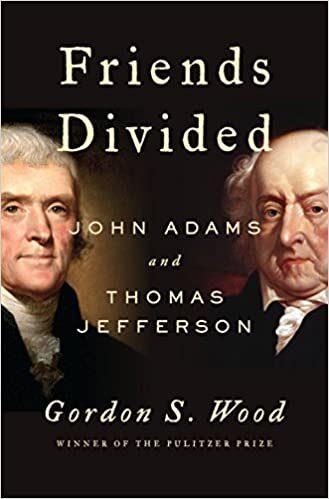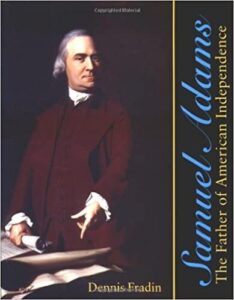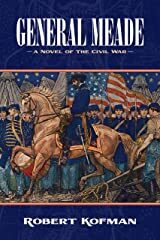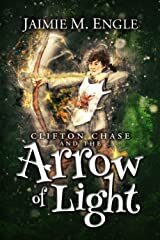Books That Will Turn You Into a History Nerd
By Jordan Baker
History books often get a bum rap as being, well, boring. And that’s probably because most of the history books you read in school were just that! I have a master’s degree in history, so, trust me, I’ve read my share of history books and essays that will make your eyes shut.
But for every snooze fest, there’s a page-turner that reads like a novel. Today, I’d like to walk you through some of the books I’ve read that turned me into and solidified my position as, a grade-A history nerd.
Whether you’re a seasoned history lover or just dipping your toes into the subject, these American history books are sure to turn you into a history nerd too.
John Adams by David McCullough
I first read John Adams in the summer between high school and college (admittedly after I’d watched and loved the HBO miniseries based on McCullough’s work). I was immediately captivated.
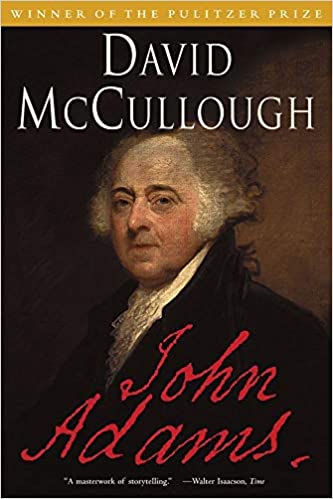 For one, the history of colonial and revolutionary America is fascinating. One can easily become lost in the story of how Americans slowly came to identify as a people separate from the British and what they went through to extricate themselves from the empire. And this is a story perfectly exemplified by the life of John Adams.
For one, the history of colonial and revolutionary America is fascinating. One can easily become lost in the story of how Americans slowly came to identify as a people separate from the British and what they went through to extricate themselves from the empire. And this is a story perfectly exemplified by the life of John Adams.
Born and raised in colonial Massachusetts, Adams was one of several children. But his intellectual gifts made him stand out to his father, who ensured young John could attend Harvard. After graduating, Adams became a lawyer, making his way through the levels of colonial law education before opening his practice.
It was as a lawyer that Adams initially gained fame. Following the Boston Massacre in March 1770, Adams defended the British soldiers who opened fire on a crowd of not-so-peaceful protestors, killing several. And he won the case! While Adams’s successful defense of these men did not make him Mr. Popular around Boston, he caught the eye of soon-to-be revolutionaries, who pulled him into the growing legal battle against Britain’s tax policies.
From there, the rest is history. Adams went on to play a key role in the American colonies declaring independence from Britain, securing alliances with France and the Netherlands that helped them win the war, and serving as the second president of the nation he helped create.
All along the way, David McCollough brings John Adams to life through expert prose, sprinkled with vivid details of life in colonial Massachusetts, Louis XVI’s court, and the early United States. McCollough is one of the best writers I have ever encountered, in any genre, and won two Pulitzer Prizes because of it (including one for John Adams). And, if you enjoy this read, I would highly recommend you follow up with 1776, McCoullough’s other book on the revolutionary generation, and one of the best history books I’ve read.
You Never Forget Your First by Alexis Coe
I read You Never Forget Your First a few years ago and have been singing its praises ever since.
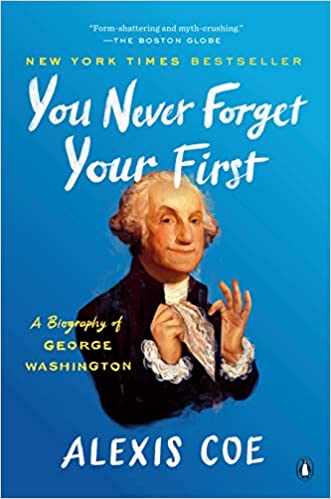 Alexis Coe offers a highly readable and humorous biography of George Washington in this book. One of the few women to have ever published a biography of Washington, Coe set out to shed light on the experiences and traits so often overlooked by his other biographers.
Alexis Coe offers a highly readable and humorous biography of George Washington in this book. One of the few women to have ever published a biography of Washington, Coe set out to shed light on the experiences and traits so often overlooked by his other biographers.
Hilariously labeling Washington’s male biographers as “Thigh Men” because of how much they like to stress the physical strength that allowed Washington to ride horseback for hours on either the battlefield or his plantations, Coe looked to take a different tact than these rather reverential biographers.
Indeed, Coe starts by drawing readers’ attention to the almost supernatural manliness often ascribed to Washington and the unforgiving portrait these works paint of the important women in his life.
Throughout the rest of the book, Coe takes these long-held myths about Washington to task, giving a more nuanced picture of Washington as a man, rather than the larger-than-life first American.
Friends Divided by Gordon S. Wood
With Friends Divided, Gordon S. Wood created a rather unique work in the history genre – a dual biography. 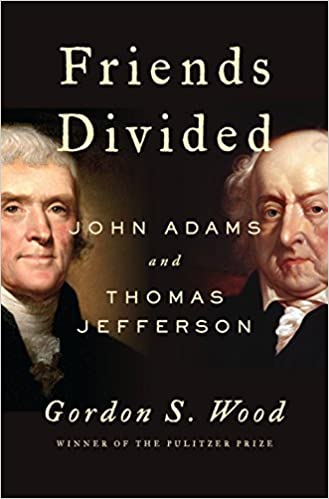 But while some biographies of single individuals can stretch close to 1,000 pages, Wood contained this gripping book to just 433; a very manageable length for budding history nerds.
But while some biographies of single individuals can stretch close to 1,000 pages, Wood contained this gripping book to just 433; a very manageable length for budding history nerds.
In Friends Divided, Wood explores the interconnected lives of two of America’s most famous founders – Thomas Jefferson and John Adams. Wood walks us through the relationship between America’s oldest frenemies through meticulous research and expertly crafted prose.
Adams and Jefferson first met as delegates to the Continental Congress and quickly took a liking to each other. Though they could not have been more different in upbringing or temperament, they complemented each other well. With Adams as the voice and Jefferson as the pen, they made the strongest push of any within the Congress for America’s separation from Britain.
Their friendship would ultimately go international, as both men served as American envoys to France during the American Revolution. Jefferson became such a mainstay at Adams’s French residence, that he and Abigail Adams, John’s wife, struck up a friendship.
After the United States achieved independence, however, the two men’s relationship soured. With different ideas of how to carry the newly born nation forward, Jefferson and Adams let politics ruin their friendship.
After both had retired from public life, they reconciled only years later. They exchanged an enormous amount of letters, becoming steadfast pen pals until their dying days. Which, eerily enough, was the same day: July 4, 1826.
If you’re interested in the early United States, this biography of Thomas Jefferson and John Adams is sure to hit the sweet spot.
Founding Mothers by Cokie Roberts
I do not doubt that the maxim, “Behind every great man is a great woman,” is 100% true. One could 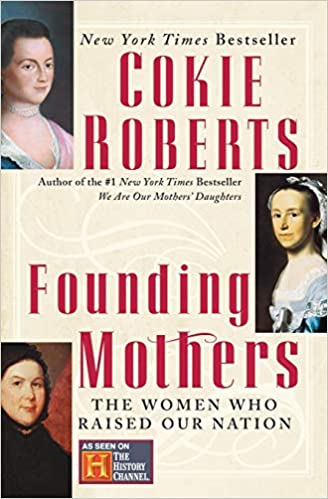 even say behind every great man is a greater woman. And Founding Mothers is a testament to the truth of this old saying.
even say behind every great man is a greater woman. And Founding Mothers is a testament to the truth of this old saying.
While most, books on American History, have been of men like John Adams, George Washington, and Benjamin Franklin, fewer have heard of Abigail Adams, Deborah Reed Franklin, and Martha Washington. With this book, Cokie Roberts tried to rectify that.
“Though we thankfully seem to have every grocery list the Founding Fathers ever wrote, most of the women left no written traces,” Roberts bemoans in the introduction. (xvii)
A best-selling author and historian, Roberts was able to draw upon what evidence did remain, such as the journal entries and letters (and even recipes!) of these and other great women of the Revolutionary generation to paint, in vivid detail, a side of the American Revolution not often depicted – the lives and roles of women in the struggle for independence.
To close out the books, Roberts notes:
“A new nation had been fought for, on the field of battle and in the form of free debate, and it would survive. And its success was in no small part due to the efforts of the women.” (408)
Lafayette in the Somewhat United States by Sarah Vowell
I’d like to go out on a humorous note. So, I saved Lafayette in the Somewhat United States for the final spot.
 Sarah Vowell is one of the most interesting writers of books on American History working today. Her unique blend of comedic wit, love of history, and interest in current events allows her to craft truly interesting books that show how the past has affected our present. This one is no different.
Sarah Vowell is one of the most interesting writers of books on American History working today. Her unique blend of comedic wit, love of history, and interest in current events allows her to craft truly interesting books that show how the past has affected our present. This one is no different.
Lafayette in the Somewhat United States is an irreverent telling of how the Marquis de Lafayette became involved in the American Revolution, his relationship with George Washington as a surrogate son, and the follies he made as a young man (he was, after all, only 19 when he joined up with the Continental Army).
Through the biography of the charming and idealistic young Marquis de Lafayette, Vowel explores the ideals of the Revolution versus the reality on the ground – a dichotomy that has carried into our day. But, as always, she makes it fun.
To sum up the book’s thesis in Vowell’s own words:
“… thanks to Lafayette and his cohorts in Washington’s army, plus the king of France and his navy, not to mention the founding dreamers who did not think through what happens every time one citizen’s pursuit of happiness infuriates his neighbors, getting on each other’s nerves is our right.” (25)
For more great books on American History check out
The Founding of the United States: 1763-1815 | Book Room Reviews
Views: 29
